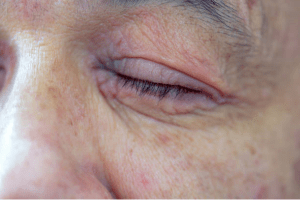Psoriasis is a common problem that many people face today. Those who may not have heard of psoriasis may be curious. Psoriasis is simply an inflammatory condition that occurs when the immune system is not functioning correctly; it causes the skin to regenerate faster than expected. The most common type is plaque psoriasis; the rapid turnover of cells leads to scales and red patches. However, what causes the immune system to malfunction is still unknown.
It is believed that both environmental factors and genetics play a role in its cause. Psoriasis tends to run in families, but it is not contagious. There is no permanent treatment for psoriasis, but there are ways that those affected try to control it, for example, by using natural lotion for psoriasis. Those affected are unlikely to transmit it to their children, but their grandchildren may be affected.
There have been situations where those affected tend to rely on the sun on to control psoriasis, but to some extent, the sun may be harmful to their condition. This article helps us understand the relationship between the sun and psoriasis and further outlines the pros and cons of natural sunlight for psoriasis. It will be helpful to those affected. Without further ado, let’s focus on the pros and cons of natural sunlight for psoriasis.
Pros of Natural Sunlight for Psoriasis

Exposure to the sun can help in reducing psoriasis symptoms. However, you should only use sun exposure as a treatment when advised by the doctor. Sun exposure may have an impact on the symptoms of psoriasis in the following ways;
- The sun radiates ultraviolet rays (UV), UVB or UVA. The difference only lies in the size of the wavelength. UVA rays reach deeper into the skin, while UVB rays can’t penetrate deeply into the skin. Therefore UVA is not effective in treating psoriasis as natural UVB rays. Exposure to natural UV light can help ease inflammation and minimize the scaling in people with mild to moderate psoriasis. UV light therapies are established treatments for chronic psoriasis. Exposure to targeted UV light can minimize psoriasis symptoms and even slow down the growth of skin cells.
- Natural sunlight also helps the body to generate vitamin D, which contains several vital functions. Vitamin D can be found naturally in most foods, but you need sunlight for most of your vitamin D supply. Most people who are suffering from psoriasis lack vitamin D.
- During phototherapy, natural or synthetic lights are used. Your doctor may choose to treat you with UVA rays instead of UVB. Because UVA rays are ineffective in clearing psoriasis signs, psoralen is added to the light therapy to enhance effectiveness. You take an oral drug or use a topical prescription on the affected areas before UVA treatment to help the skin absorb the light. This treatment is abbreviated as PUVA and is used to treat severe or moderate plaque psoriasis. Thicker plaque psoriasis responds well to PUVA since it reaches deeper into the skin. PUVA therapy is mainly used in treating hand and foot psoriasis.
Cons of Natural Sunlight for Psoriasis
We all know that excessive exposure to sunlight may harm your skin, especially those affected by psoriasis. Exposure to sunlight may be harmful in the following ways;
- Sunburns can deteriorate your psoriasis symptoms. Too much sun exposure can backfire and, as a result, worsen the psoriasis symptoms. It is due to the Koebner phenomenon whereby an injury to the skin, be it a scratch, cut, or sunburn, can trigger psoriasis to develop rapidly.
- Some medications for psoriasis can result in you being more photosensitive. It implies that you are likely to burn. These medications mainly include vitamin A derivative creams such as coal tar and tazarotene. So whenever you need to self-medicate using sun medication, you should ensure you seek your doctor’s advice. It will be beneficial and will help you determine if you are taking medication that is too photosensitive or not.
- Even though sunlight is healthy for skin prone to psoriasis, too much of it is not suitable for you. UV exposure raises your risk of skin cancer. So to some extent, it may not be recommended if you have a history of skin cancer or melanoma or a family member who has skin cancer.
- The use of tanning beds is not recommended for the treatment of psoriasis symptoms. Unlike phototherapy units, tanning beds use wavelengths that are harmful to the skin and can damage the skin and increase the risks of skin cancer. Tanning beds can also use more UVA than UVB light; this is another reason why they are not as effective as phototherapy in minimizing the symptoms of psoriasis.
Conclusion
There is no permanent treatment for psoriasis, but you can minimize its symptoms by following the doctor’s recommendations. It is not contagious, so do not shun those with the symptoms. To minimize its symptoms and regulate exposure to the sun, and in extreme cases, sunscreen and glasses are highly recommended. To get more clarification on psoriasis, visit our website for more.

